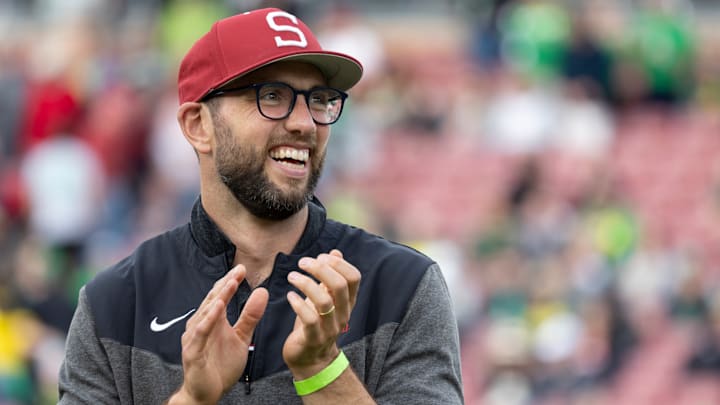As we approach the six-year anniversary of Andrew Luck’s shocking retirement announcement, Indianapolis Colts fans may have a little more perspective. What had felt like some sort of personal betrayal can now be viewed as a logical attempt to preserve quality of life.
In fact, maybe the most shocking thing about what Andrew Luck chose to do in August 2019 is that more players haven’t made the same decision.
The lure of fame and riches offered by the NFL usually overwhelms growing concerns about arthritic knees and brain damage later in life. Beyond the tangible rewards, most athletes will admit the hardest thing to forgo is the competition itself. NFL players have grown up on a steady diet of that competition. Replacing the purpose and the thrill it provides is often a monumental task.
Several veterans have called it a day this summer. Players like Tyrann Mathieu, C.J. Mosley, and Ronald Darby could almost certainly have earned a nice paycheck, but they chose otherwise.
The Indianapolis Colts are still feeling the aftershocks of Andrew Luck’s retirement
Those players are all in their 30s. Luck was 29 when he announced he was stepping away. And he was a quarterback.
Losing a great player always poses a challenge. Losing a franchise quarterback threatens the very viability of that franchise. New Orleans is trying to move on from Derek Carr this year. They did have some warning about Carr’s future when he was injured last year, but it is still an enormous problem. Indy had no such warning in 2019.
Luck talked about his life since the big decision to Zak Keefer in a recent Athletic article (subscription required). He makes clear that he entered the NFL with every intention of playing a long time and bringing Super Bowl titles to Indianapolis. But the constant injuries became too much.
Retirement meant trading one type of pain – the physical – for a different type – the psychological. He felt he had let people down, including himself. He felt like he had thrown away his gifts and his dreams. Throughout his entire life, he had loved football. Now he was going through an impossible breakup – one that he had chosen.
But time has helped him heal, and Luck had a full circle moment last November when he accepted the job as general manager of the Stanford football program. The program he had led to prominence 15 years ago had fallen on hard times. They turned to Luck to rebuild. One of his first moves was to fire embattled coach Troy Taylor and bring in the man who had coached Luck with the Colts, Frank Reich.
Reich, who had accepted a de facto retirement when his gig in Carolina imploded, wasn’t all that interested in re-entering the grind. But he agreed to serve as Stanford’s interim head coach this year while his GM charts a path forward.
Luck’s retirement wasn’t unique. Just rare. In the past year, the Seattle Seahawks and Detroit Lions have had to absorb the unexpected retirements of their starting centers. Connor Williams and Frank Ragnow, like Luck, were not yet 30 when they stepped away. Ragnow, like Luck, called it quits after a Pro Bowl season.
But centers are not quarterbacks. No one is a quarterback. No player carries the weight of his team’s aspirations like a quarterback. Even six years later, that nerve is still a bit raw. Quenton Nelson made the playoffs as a rookie in Luck’s final season. He was part of the team that beat Houston in the Wild Card round. Andrew Luck threw a couple of touchdowns passes in the game to Eric Ebron and Dontrelle Inman.
None of those players – Nelson, Ebron, Inman, and Luck – ever won another playoff game. Nelson still hopes to reverse that.
Maybe he’ll get his chance if and when Anthony Richardson develops his game. Or maybe it will take a new quarterback. When that time comes – when Indy has a quarterback who allows for legitimate dreams of deep playoff runs – then the final scars of the Andrew Luck retirement can heal.
For now, I don’t know anyone who doesn't wish him the best in his Stanford gig. But that doesn’t mean twinges of “what might have been” don’t linger.
